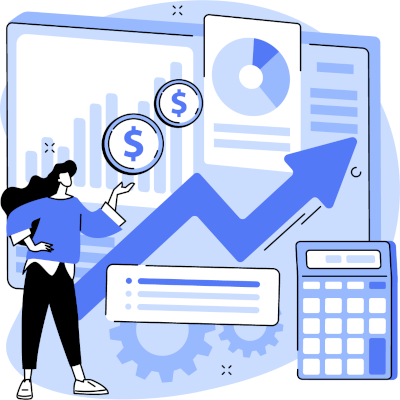What You Need to Know about the Security Operations Center Market in Switzerland
Managed security services providers in Switzerland are seeing success with the security operations center (SOC) model.
ISG can help you differentiate, gain awareness in the market and grow. Everything we do for your growth strategy is based on ISG’s unique practitioner-led approach and our expertise in outsourcing, managed services and all things digital.
Partner with ISG for ground-breaking custom research to educate the market and your buyers. Connect with new audiences as a sponsor of ISG events and participate in ISG Research to showcase your credentials.

Guide your growth strategy with our data-driven and practitioner-led solutions. They help you better understand market demand, price to win, and actively engage with ISG advisors to optimize your pursuit capabilities.
ISG is a leader in proprietary research, advisory consulting and executive event services focused on market trends and disruptive technologies.
Get the insight and guidance you need to accelerate growth and create more value.
Learn MoreData governance is an issue that impacts all organizations large and small, new and old, in every industry, and every region of the world. Data governance ensures that an organization’s data can be cataloged, trusted and protected, improving business processes to accelerate analytics initiatives and support compliance with regulatory requirements. Not all data governance initiatives will be driven by regulatory compliance; however, the risk of falling foul of privacy (and human rights) laws ensures that regulatory compliance influences data-processing requirements and all data governance projects. Multinational organizations must be cognizant of the wide variety of regional data security and privacy requirements, not least the European Union’s General Data Protection Regulation (GDPR). The GDPR became enforceable in 2018, protects the privacy of personal or professional data, and carries with it the threat of fines of up to 20 million euros ($22 million) or 4% of a company’s global revenue. Europe is not alone in regulating against the use of personally identifiable information (other similar regulations include The California Consumer Privacy Act) but Ventana Research’s Data Governance Benchmark Research illustrates that there are differing attitudes and approaches to data governance on either side of the Atlantic.
Data governance is a hot topic these days. In fact, we are conducting benchmark research on the subject here. With increasing regulations such as the General Data Protection Regulation (GDPR) and the California Consumer Privacy Act (CCPA), organizations face more external oversight of their data governance practices. The risk of significant fines associated with these and other regulations, coupled with organizations’ internal compliance requirements, has brought more attention to data governance practices. We anticipate through 2023, three-quarters of Chief Data Officers’ primary concerns will be governing the privacy and security of their organization’s data.
Agentic AI is emerging as a transformative force that redefines how organizations think, decide and act. Unlike traditional automation or GenAI, agentic AI systems are designed to autonomously execute business processes, dynamically pursue goals and collaborate across workflows. This shift to agentic AI marks a new chapter in enterprise intelligence, where decision velocity, contextual awareness and orchestration become the cornerstones of competitive advantage. Agents are capable of breaking down objectives into smaller tasks, planning execution strategies, interacting with multiple applications, collaborating with other agents and adapting to feedback. In this sense, agentic AI is designed to function more like a digital employee than a static tool. Although still an emerging market, with experimentation outpacing scaled adoption, agentic AI has already begun to shape the future of how organizations think about productivity, decision-making and business transformation.
Requirements for sustainability reporting have been undergoing a political shift over the past year, including modifications to the EU’s reporting requirements. The difference between European and North American attitudes to sustainability as a priority, which were significant 15 years ago, began to converge toward the end of the ‘teens but now appear to be diverging. In the U.S. in particular, there have been legal challenges to state laws and a deregulatory emphasis at the Federal level. The scaling back of the scope and granularity of sustainability reporting is having its biggest impact on small and midsize establishments in the EU. Nonetheless, mandated reporting remains in place for larger enterprisers around the world, albeit to varying degrees. Moreover, there is still demand for enterprises to set and meet sustainability objectives to achieve increased operating efficiency and to associate their brand with responsible stewardship of the environment. For these enterprises, there remains the need to achieve efficient compliance with reporting mandates as well as to have processes and systems in place to set overall objectives and mechanisms to assign responsibility for meeting them across the enterprise.
Revenue organizations are running out of room to hide. With increasingly complex buyer journeys, longer sales cycles and rising expectations for personalized outreach, today’s CROs face a mounting challenge: deliver predictable growth in a market that’s anything but predictable while simultaneously building a team that doesn’t burn out.